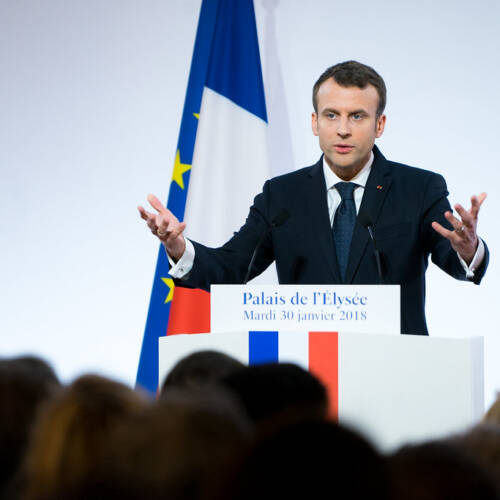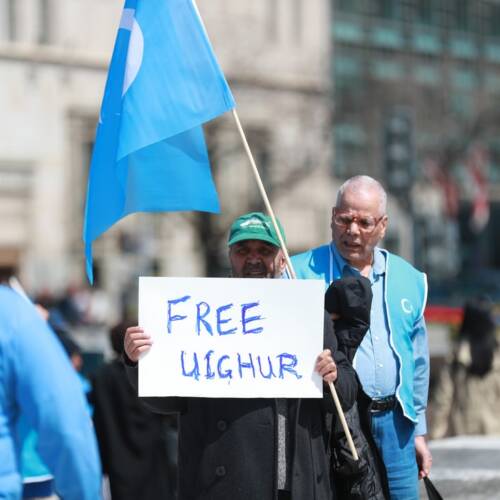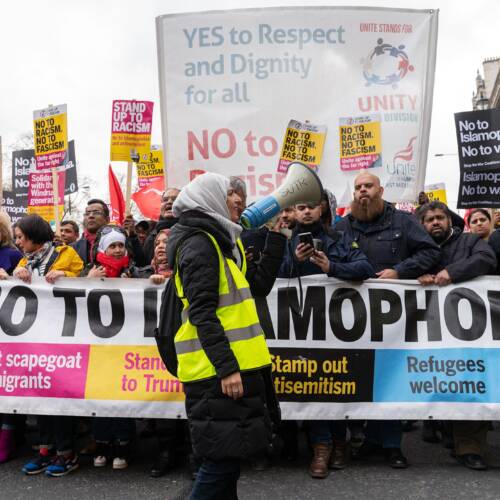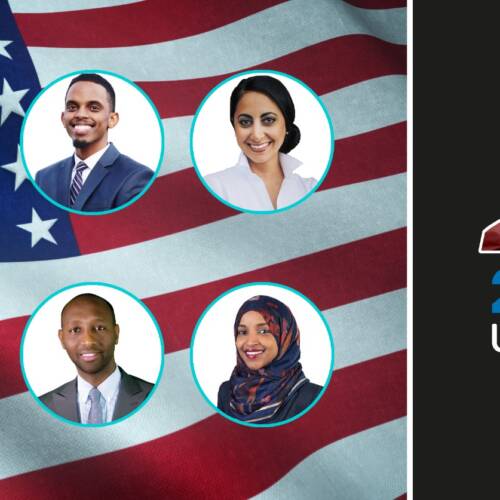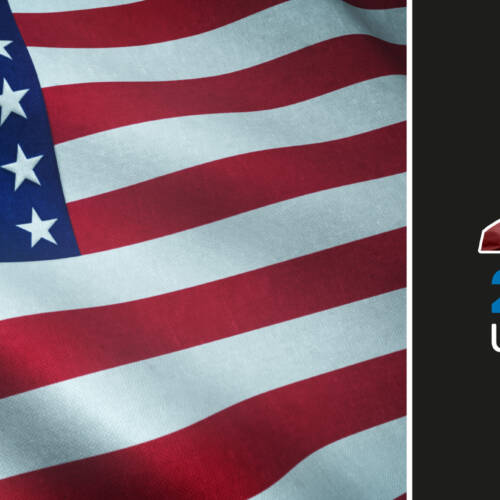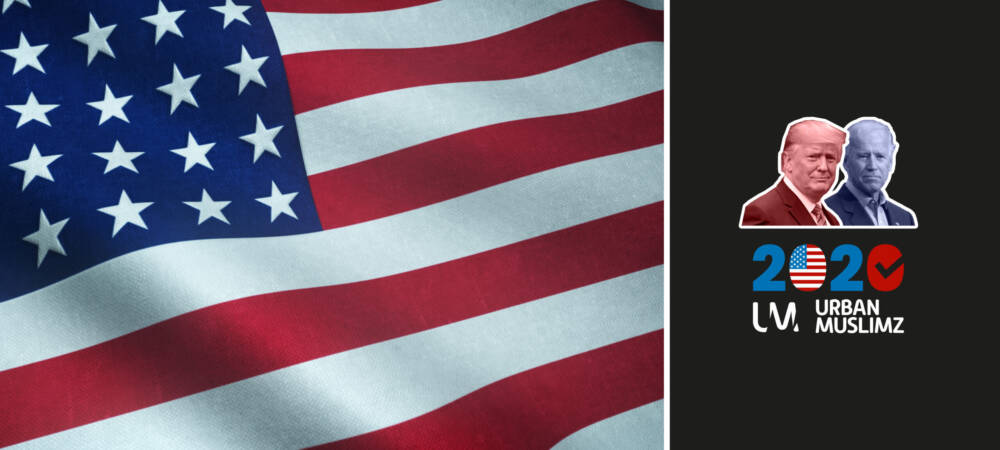
It Is Baffling But Some Muslims Still Support Trump
02 Nov 2020It is baffling to read that Trump still commands a small but noticeable support among American Muslims. A report, which polled American Muslims for their political leanings, found that 30% would vote for Trump, again.
While the article acknowledges that Muslims, as a whole, are averse to Trump, the fact that any Muslim could continue to vote for him after four years of utterly shambolic governance; igniting racism and Islamophobia; shows of increasingly-visible far-right sympathies; and the utter mishandling of the coronavirus crisis, is puzzling.
Read on to understand why some American Muslims voted for Trump in 2016 and why they may do so now.
The Republican Party Was the Go-To Party for Muslims Until 2004
Contrary to what many may associate the Republican Party with today, until the early 2000s, it was the go-to party of many Muslims. American Muslims voted overwhelmingly for George HW Bush in 1992 and George W Bush in 2000.
The younger Bush was something of a pioneer when it comes to relations between the Republican Party and American Muslims: in 1999, he hosted a series of meetings between Muslim and Republican leaders and went on history as the first major presidential candidate to visit an Islamic centre. In 2000, the Republican national convention was the first in either national party’s history to include a Muslim prayer. Indeed, Bush was often celebrated for his attendance at “church, synagogue, or mosque.”
Seems like a whole other world.
The reasons for American Muslims’ votes vary. Statistically, many Muslims were conservative and felt similarly to their republican counterparts about matters of government spending, welfare, abortion rights and other issues.
Of course, 9/11 changed all that, with the party’s far-right and Islamophobic branches growing ever more vocal since, while the invasion of Iraq and the torture scandals in Abu Ghraib and Guantanamo doing indelible damage to the governing party.
Despite Bush’s vocal attempts to not link the horrific terrorist attacks to Islam as a whole, the growing and mutual negative perceptions between the Republican Party and American Muslims meant that by 2004, many were deserting the party. And the bitter 2008 election only accelerated this trend.
By then, the percentage of American Muslims who voted Republican was around 11% and it hovered around there since. The apparent 30% support found in the recent poll represents a significant jump.
Why Did Muslims Vote for Trump in 2016?
There are myriad reasons why American Muslims voted for Trump. For some of them, especially older voters who may be motivated by conservative values or are otherwise not too engaged in national politics, voting for Trump is simply the continuation of how they’ve been voting Republican over the years.
This is supported by an ISPU poll that showed that less educated non-Black Muslims are more likely to support Trump.
Others, however, were motivated by very specific issues. For some American Muslims who voted for Trump, his strong stance on matters on Islam was actually an appeal. They cited his strong vocal stance against ISIS as an indication that Trump is not against Islam, but extremism.
“Most are outraged at Trump saying he wants to ban Muslims from entering America, but I support that as a Muslim person, because we have to stop what is happening and work with other Muslim countries to stop terrorism. If you stop Muslims from entering the country, it forces everyone to look at the problem,” said one American Muslim who voted for Trump.
Similar views were expressed in the lead-up of the 2016 election and its immediate aftermath, with one commentator quoting Verse 59 in Surah al-Nisa as his grounds for supporting him, even as he acknowledged that he didn’t support the Trump campaign and admitted that many of his supporters took advantage of his victory to engage in acts of bigotry.
An antipathy towards Hilary Clinton and her turbulent, troubled campaign was also among the reasons given, with one commentator citing Clinton’s record in the Middle East among her reasons for not supporting her campaign despite supporting her on a variety of issues.
These views do not represent a majority and, more importantly, in all instances, the commentators expressed concern about Trump’s rhetoric, with one die-hard Trump supporter acknowledging that he protested when the “Muslim Ban” was first proposed, though he admitted that he is very happy with the latest version that barred entry to citizens of only a handful of Muslim countries.
By such individuals, Trump’s rhetoric was either excused, explained away or minimised as sabre-rattling.
There is also a racial component to the votes. Perhaps unsurprisingly given his response to Black Lives Matter protests, Black Muslims support Trump in the smallest numbers.
Muslims of white backgrounds support Trump in significantly higher numbers (31%) compared to Muslims of Black, Arab and Asian backgrounds (around 5%). This is significant and may explain the rise for Trump among Muslims amidst an increasingly-racialized election.
Another explanation is on issues: despite historic shifts, Pew polling found that many American Muslims are sceptical of both parties and tend to base their vote on issues, rather than partisan differences. It is possible that specific economic anxieties Trump capitalised on, or specific foreign policy choices such as strong stance against China and cordial ties with Turkey or Saudi Arabia, were a factor in their votes.
Ultimately, however, these are just speculative. Unlike 2016, when many papers and sites published OpEd pieces from minority voters who supported Trump, there appear to be very few such pieces today.
Where Do Voters Go from Here?
Like it or not, there are American Muslims for whom Trump’s first four years, despite the many transgressions and violations of common decency, were not a deal-breaker. This is not too different than the small number of British Muslims for whom years unchecked Islamophobia in the Conservative Party were not deal-breakers.
In an election that has global ramifications, it is important for Muslims around the world and especially in the US to better understand why their fellows are voting the way they are and what impact it will have.
One thing is clear: Trump will not be their saviour.







